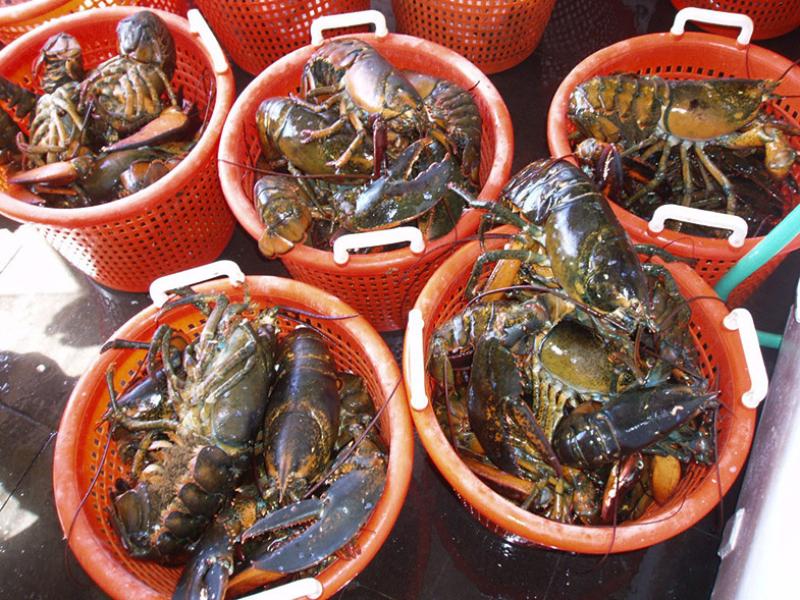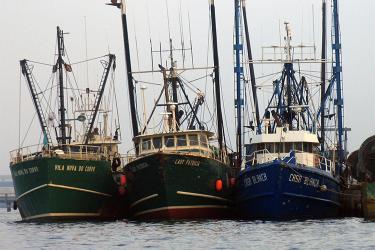Border operations have always been a focus area for NOAA’s Office of Law Enforcement (OLE). In an effort to ensure a level playing field for U.S. fishermen and ensure that illegal product is not coming into the domestic market from abroad, OLE has stepped up its efforts.
“The real uptick in these types of operations started in 2014,” said Lt. Eric Provencher, OLE’s supervisory enforcement officer for the New England region. “We conduct numerous smaller border operations throughout the year with larger, more focused operations around the holidays.”
The most recent operation took place at the Calais Maine Port of Entry the week before Christmas 2016, with the intent to check incoming fish from Canada heading to U.S. markets. Historically, the U.S. market sees an increase of not only lobster but also flatfish, as the demand for these fish increase during the holiday season.
While each operation varies in target and focus, the intent of these efforts is to deter illegal activity and provide compliance assistance to ensure fishermen are fully educated on regulations.
“Day-to-day operations are absolutely essential to meeting our mission, but these larger operations are a good way of doing business,” said Provencher. “It’s a concentrated effort that’s a good way to collect baseline data for year-to-year compliance rates.”
The Christmas 2016 operation focused enforcement efforts on U.S. regulations pertaining to size restrictions, proper labeling and tagging of shipments, prohibited species, and lobster regulations, such as restrictions with egg bearing females.
During the four-day operation, a seven-man team sifted through 24 shipments of lobster, several thousands of pounds of halibut, and three shipments of sea urchins. The halibut and sea urchin shipments were all of legal size and properly tagged for importation. But, 206 lobster-related violations were recorded through the partial inspections of large shipments, which collectively resulted in $21,350 worth of summary settlement fines and one Notice of Violation and Assessment (NOVA). The NOVA is being processed through NOAA’s Office General Counsel; the size of any financial penalty for the NOVA has yet to be determined.
“There’s no obligation for these containers to cross back into the United States,” explained Provencher. “We noticed that in the four days we were conducting operations, shipments slowed down. Containers were being held back or just sitting in Canada and deliveries waited until we were definitively gone. So, we’re already seeing that we are deterring activity. And deterring illegal activity is essential to ensure the sustainability of our fisheries.”
This operation was led by OLE with support from Customs and Border Protection, U.S. Fish and Wildlife Service, Maine Marine Patrol, and Canada’s Division of Oceans and Fisheries.
-
Note: Operation conducted December 2016.



